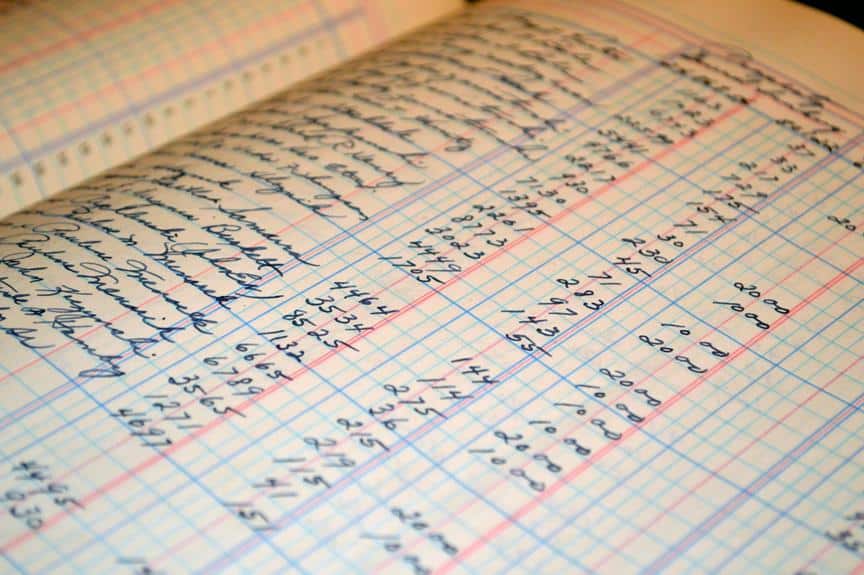
This post was last modified on September 4, 2024.
What Are Closing Costs?
Closing costs are the fees and expenses you’ll incur during the final steps of purchasing a property and often include various charges associated with the transaction.
Costs associated with closing can include loan origination fees, appraisal fees, title insurance, and attorney fees, among others. Each of these costs plays a significant role in the transaction, ensuring everything goes smoothly. For instance, the loan origination fee compensates the lender for processing your mortgage, while the appraisal fee guarantees the property’s value meets the loan amount.
Estimating expenses early on can help you budget effectively and prevent financial strain. You can request a good faith estimate from your real estate agent or lender, which outlines the anticipated closing costs. This document will give you a clearer picture of what to expect, allowing you to adjust your financial plans accordingly.
Breakdown of Closing Costs
First, you’ll encounter loan origination fees, which lenders charge for processing your mortgage application. This fee can vary based on the lender and your financial profile, so it’s important to shop around for the best rates.
Next, you’ll likely pay for an appraisal fee to determine the home’s market value. This guarantees the lender isn’t providing more money than the property is worth. Title insurance is another significant cost, protecting you from any legal claims against the property. Additionally, you may need to pay for a title search to confirm ownership and check for liens.
Escrow accounts also play a significant role in closing costs. These accounts hold funds for property taxes and homeowners insurance, making sure these expenses are covered over time. You may need to deposit a few months’ worth of payments into the escrow account at closing, which can add to your total costs.
Lastly, don’t forget about miscellaneous fees like inspections, recording fees, and attorney fees, which can also add up. By understanding each component, you can budget accordingly and possibly negotiate some of these fees. Being informed empowers you to make better financial decisions as you approach your home purchase.
How Closing Costs Are Calculated
Understanding how closing costs are calculated is important for your home purchase. These costs can vary widely depending on factors such as location and the specifics of the transaction.
You’ll encounter both fixed and variable costs, which include lender fees and third-party expenses. Knowing these details helps you budget effectively and avoid surprises at the closing table, especially considering that closing costs typically range from 2% to 5% of the purchase price.
Fixed and Variable Costs
Closing costs can be broken down into fixed and variable costs.
Fixed expenses are fees that don’t change regardless of the property price. These typically include items like appraisal fees, title insurance, and recording fees. Since these costs remain constant, you can plan for them with more certainty.
On the other hand, variable expenses can fluctuate based on various factors, such as the loan amount or the specific lender you choose. Examples of variable expenses include loan origination fees and mortgage insurance. These can vary greatly, so it’s important to shop around for the best rates.
Lender and Third-Party Fees
Calculating closing costs involves managing various lender and third-party fees that can greatly impact your overall expenses. These costs typically stem from the lender’s requirements for processing your mortgage application and facilitating the transaction.
Lender fees often include origination fees, underwriting fees, and any charges related to credit checks. These are key for the lender to assess your financial profile and the risk involved in lending to you.
On top of that, you’ll encounter third-party services, such as title insurance, appraisals, and home inspections. These services guarantee the property’s value and legal standing, which are significant for securing your investment.
Common Myths About Closing Costs
Many homebuyers have misconceptions about closing costs that can lead to confusion and financial surprises.
One common myth is that closing costs are just hidden fees added to the purchase price. In reality, closing costs encompass a variety of legitimate expenses, including title insurance, appraisal fees, and attorney fees. These costs are key for finalizing the purchase and ensuring that all financial transactions are properly managed during the closing process. It’s important to understand that these costs are necessary for completing the transaction and protecting your investment.
Another misconception is that you can negotiate away all closing costs. While you can negotiate some fees, many are set by third-party providers and are non-negotiable. It’s important to do your homework and gather estimates to know what to expect.
Some buyers also believe that closing costs are solely the responsibility of the buyer. However, sellers can contribute to these costs through seller concessions, a practice often used to close the deal more swiftly. Knowing this can help you when budgeting for your new home.
Additionally, many assume they won’t need to budget for these costs until the closing date. This can lead to unexpected financial strain. Instead, incorporate closing costs into your overall budgeting strategies early in the home-buying process. By setting aside funds ahead of time, you’ll avoid last-minute surprises that could derail your plans.
Frequently Asked Questions
Can Closing Costs Be Rolled Into the Mortgage?
Yes, you can roll closing costs into your mortgage financing. This option increases your loan amount but can make upfront expenses more manageable. Be sure to weigh long-term costs against short-term savings before deciding.
Are Closing Costs Negotiable With the Seller?
Yes, closing costs are negotiable with the seller. Use negotiation strategies like requesting seller concessions to lower your expenses.
What Happens if I Don’t Have Enough for Closing Costs?
If you don’t have enough for closing costs, explore alternative financing options and adjust your budgeting strategies. Don’t hesitate to communicate with your lender; they might offer solutions to help you cover those expenses effectively.
How Do I Find Out My Estimated Closing Costs?
To find your estimated closing costs, start by calculating closing costs using online calculators or ask your lender or real estate agent for closing cost estimates. These resources help you prepare financially and avoid surprises during your home purchase.




